International
The drama of displacement due to the conflict in the Catatumbo returns to the streets of Tibú
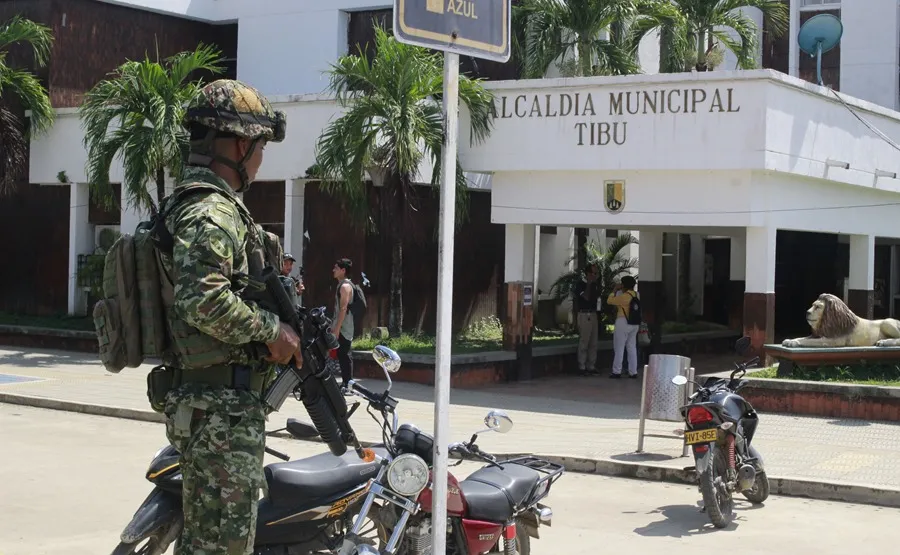
The streets of Tibú, an oil town in the Colombian department of Norte de Santander, have once again been the scene of the exodus of thousands of people who seek refuge from the violence between the guerrillas of the National Liberation Army (ELN) and one of the FARC dissidents.
This town experienced similar scenes between 1997 and 2004 when the massacres of guerrillas and paramilitaries forced the displacement of more than 34,000 people who had to flee to get to safety after being accused of collaborating with the other side.
This time, of the 38,000 displaced people left by the guerrilla war in Catatumbo, about 5,300 are in Tibú and the rest, mostly in Cúcuta, capital of Norte de Santander (15,086) and in Ocaña (11,503), the second city of the department, bordering Venezuela.
In the urban center of Tibú there are five temporary shelters that welcome adults and children and in which the situation is about to become critical.
One of them is the Minor Seminary, converted into an improvised home for those who arrive with their own dramas.
In the different spaces of this place there are temporary beds and people with stories of sleepless nights and the despair that accompanies those who flee aimlessly from the bullets.
“We were two days in silence inside the house. At night we did not turn on the light for fear that they would reach us,” a woman who prefers to omit her name and who fled with her husband and two children from the La 25 sector told EFE.
Another woman, named Luz Mary, from the farmhouse of Miramontes, said that she went out on motorcycles along with several members of her family.
“They told us that we should go out and we left our animals abandoned. It is strong and more for our children,” he told EFE, while in the background some minors were heard chanting “We want peace.”
Don Jaime, a farmer with deep roots in the farmhouse of La Serpentina, shares his story: “My family has lived here for generations. The earth is our home, but now we are forced to flee, but I will return.”
As the days go by, the exodus continues in the deep Catatumbo. Some stay in Tibú, others continue their way to Cúcuta, where there are already more than 15,000 displaced people, or to Ocaña, which has received more than 11,500 people.
The catatumbero Jean Carlos lived closely the beginning of the conflict and fled with 11 relatives on a motorcycle in search of shelter.
“One panics,” he says, and assures that he plans to return to his land as soon as everything calms down because “we have fought hard to have it to leave it thrown away.”
Lieutenant Colonel Miyer Fernando Moreno Gutiérrez, commander of the Army’s Battalion of Military Engineers No. 30, said that they are evacuating civilians in risky conditions, the most recent of them with 40 people.
“With the constant aerial patrol, 120 people have been rescued, including social leaders, peace signatories and communal leaders, who were protected and placed in shelters,” said the officer, who indicated that they have had knowledge of isolated confrontations, but not with the same intensity of the first day.
The humanitarian response continues to arrive and the Government of the North of Santander has activated protocols to provide basic assistance to those affected: food, mats and hygiene kits are distributed among the shelters.
The streets of Tibú are patrolled by the Army and the Police, who try to bring tranquility and order, but fear persists and insecurity remains a shadow over the community.
International
Colombia: Search continues for missing limb of italian scientist found dismembered
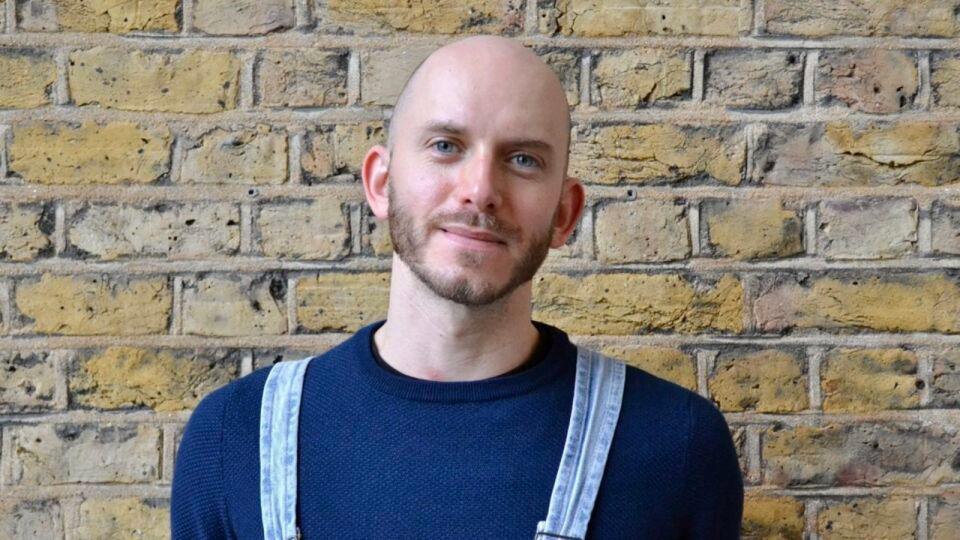
Rescue teams and Colombian authorities continued their search on Tuesday for the missing left leg of Italian biologist Alessandro Coatti, whose dismembered body was found in the Caribbean city of Santa Marta.
Coatti, 42, was a molecular biologist who had been traveling through South America after working for eight years at the Royal Society of Biology (RSB) in London.
He had been staying in a hotel in Santa Marta since April 3 and was later reported missing. His dismembered body began to be discovered on April 6, when parts were found inside a suitcase abandoned near a football stadium in an area known as Bureche.
“We’re conducting the search along the riverbanks and in the water to identify possible spots where, due to the river’s current, the missing left leg might be located,” Karlotz Omaña García, director of the Magdalena Civil Defense, told The Associated Press. Despite covering a 500-meter radius, the limb was not found.
Authorities have not named any suspects or shared possible motives. A reward of more than $11,000 has been offered for information leading to those responsible for the foreign scientist’s murder.
Police continue to reconstruct Coatti’s final movements. According to Colonel Jaime Ríos, head of the Santa Marta Metropolitan Police, the Italian biologist arrived in Colombia in January and had visited several locations, including Medellín, before traveling to Santa Marta.
Security footage shows Coatti was in downtown Santa Marta the night before his body was found, the colonel added.
Santa Marta, a popular Caribbean tourist destination, is known for its clear beaches. Police believe Coatti may also have visited Tayrona Park, a protected coastal area located about 34 kilometers (21 miles) from the city center.
International
MPV Denounces Electoral Blockade as Secretary-General is Disqualified for May Elections
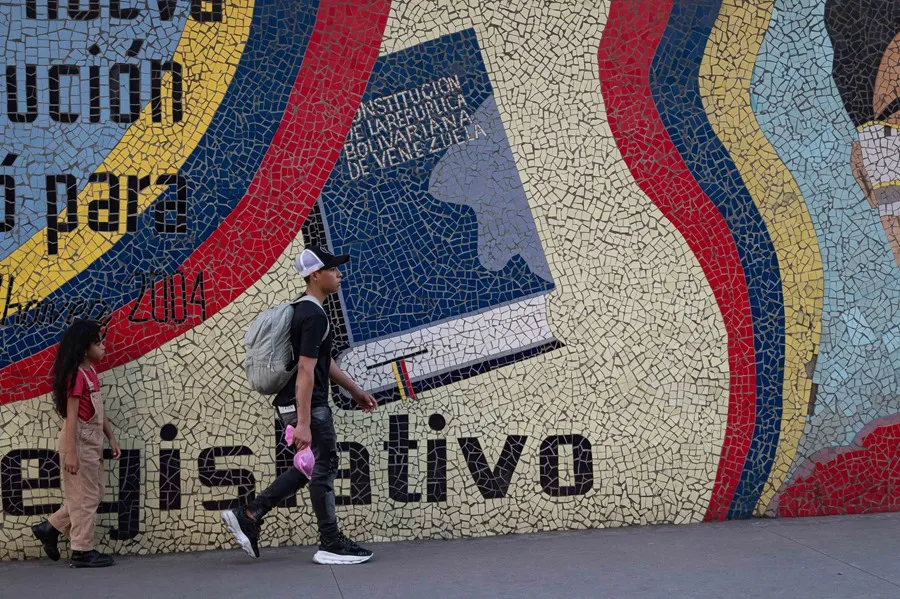
The anti-Chavista party Movement for Venezuela (MPV) denounced on Monday that it was “prevented” from submitting its candidates for the regional and legislative elections on May 25, elections rejected by opposition leaders Edmundo González Urrutia and María Corina Machado.
“MPV, being an active and recognized party in the National Electoral Council (CNE), was prevented from submitting candidates for the current electoral process,” stated the political group through a communiqué on X.
Additionally, the group denounced that its Secretary-General, Simón Calzadilla, was “suddenly disqualified,” as the opposition leader warned last Friday. He also explained that he attempted to access the CNE’s automated candidate submission system but, as he added, the portal showed that he was not authorized to create a user and submit the MPV candidates.
For the party, its “strong decision” to participate in the May elections “highlighted the true nature of this electoral process,” which it described as “extremely flawed.”
International
Maduro Plans Major Workers’ March on May 1st to Defend Venezuela’s Freedom
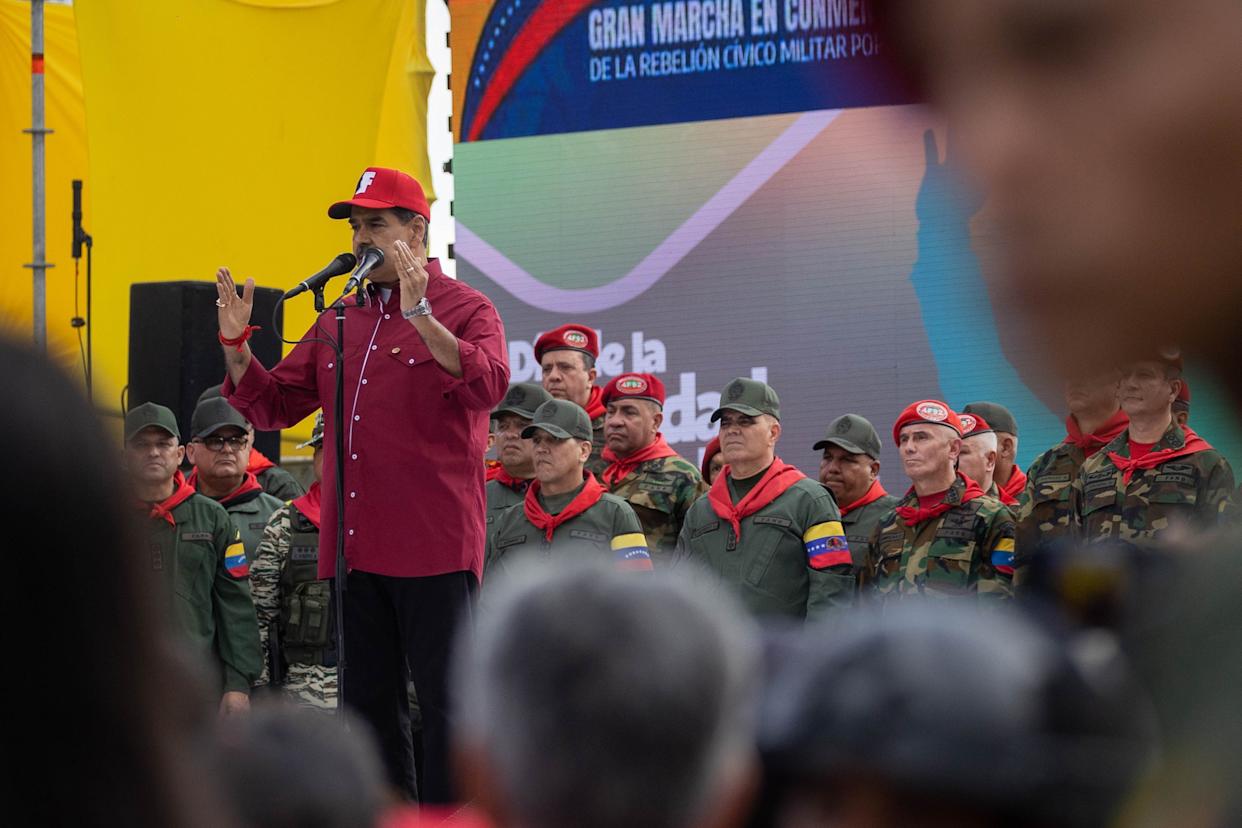
Nicolás Maduro, who swore in for a third term in January following his controversial re-election, called on Monday for the “working class” and the “armed people” to gather for a concentration on May 1st for peace, as part of the celebration of International Workers’ Day.
“Let’s have a powerful march of the working class, the combat bodies, and the Bolivarian National Militia in all the cities of the country, from end to end, working class and armed people in the streets shouting for peace,” said the chavista leader in a broadcast on the state channel Venezolana de Televisión (VTV), surrounded by military authorities.
He also stated that Venezuela is more armed than “ever” to “defend the sacred dream of a free homeland, the sacred soil of a heroic land, Venezuela.”
Maduro called on all military personnel to “stay in shape” with a “deployment capacity” and also to have “a very clear view of the entire national territory.”
-
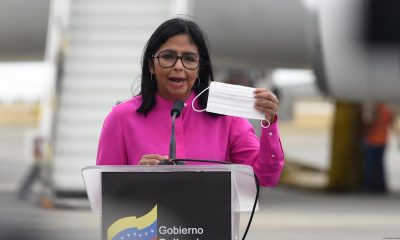
 International3 days ago
International3 days agoVenezuela accuses Guyana of “warlike intentions” after UK defense deal
-

 Central America4 days ago
Central America4 days agoSpanish Ex-Congresswoman Calls for ‘Bukele-Style’ Security Policies in Europe
-
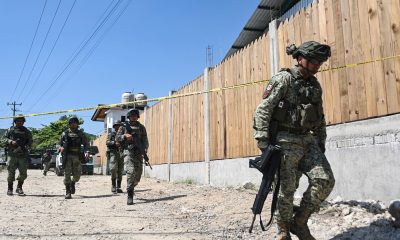
 International4 days ago
International4 days agoTrump Authorizes Military to Take Control of Federal Land Along U.S.-Mexico Border
-

 International3 days ago
International3 days agoNightclub Collapse in Dominican Republic Claims 226 Lives
-

 Central America2 days ago
Central America2 days agoHonduran Police Offer $135K for Tips Leading to the Arrest of Romeo Vásquez
-

 International2 days ago
International2 days agoMaduro Plans Major Workers’ March on May 1st to Defend Venezuela’s Freedom
-

 Central America17 hours ago
Central America17 hours agoPetro questions Ecuador’s vote, cites reports of military control and arrests
-

 International2 days ago
International2 days agoMPV Denounces Electoral Blockade as Secretary-General is Disqualified for May Elections
-

 International17 hours ago
International17 hours agoColombia: Search continues for missing limb of italian scientist found dismembered















